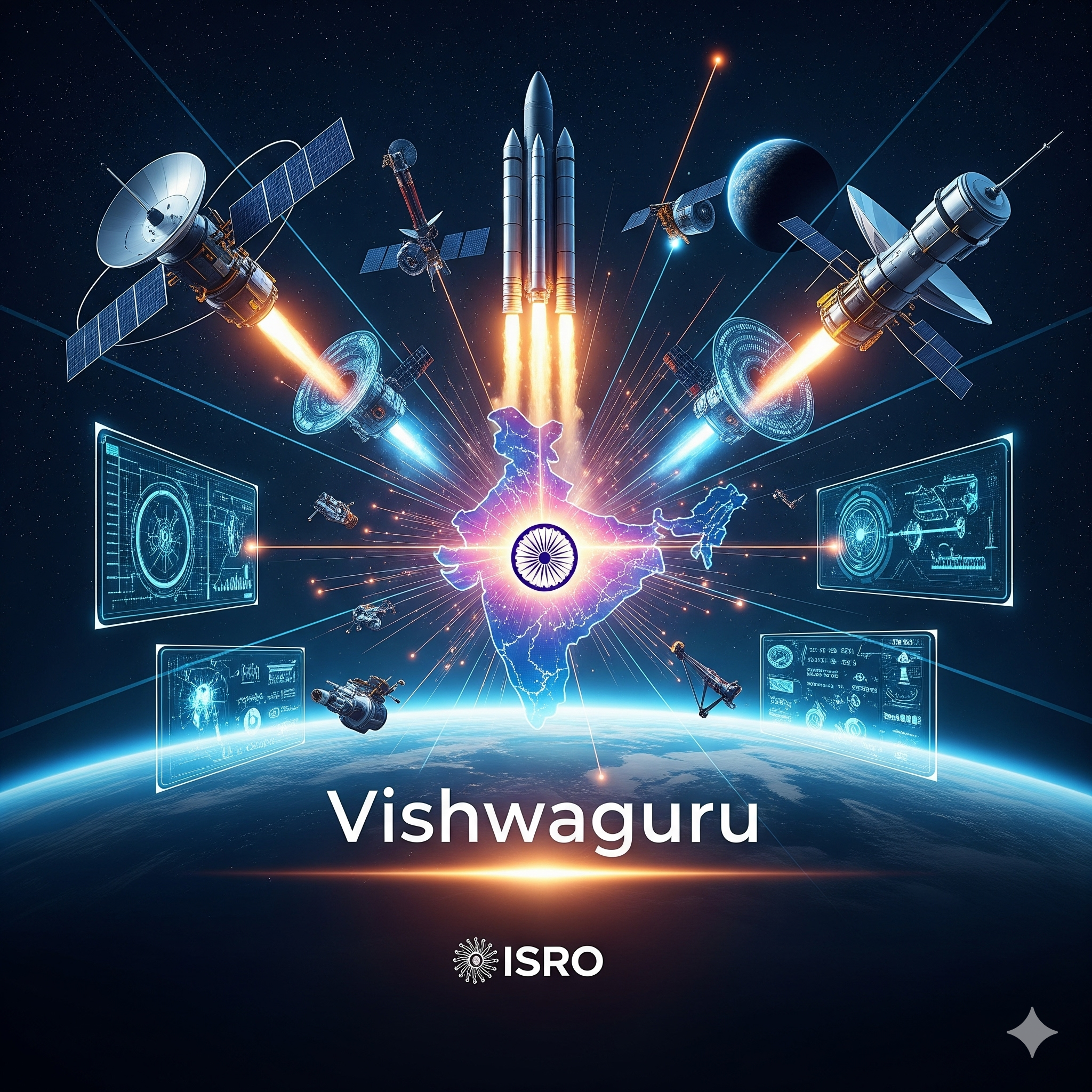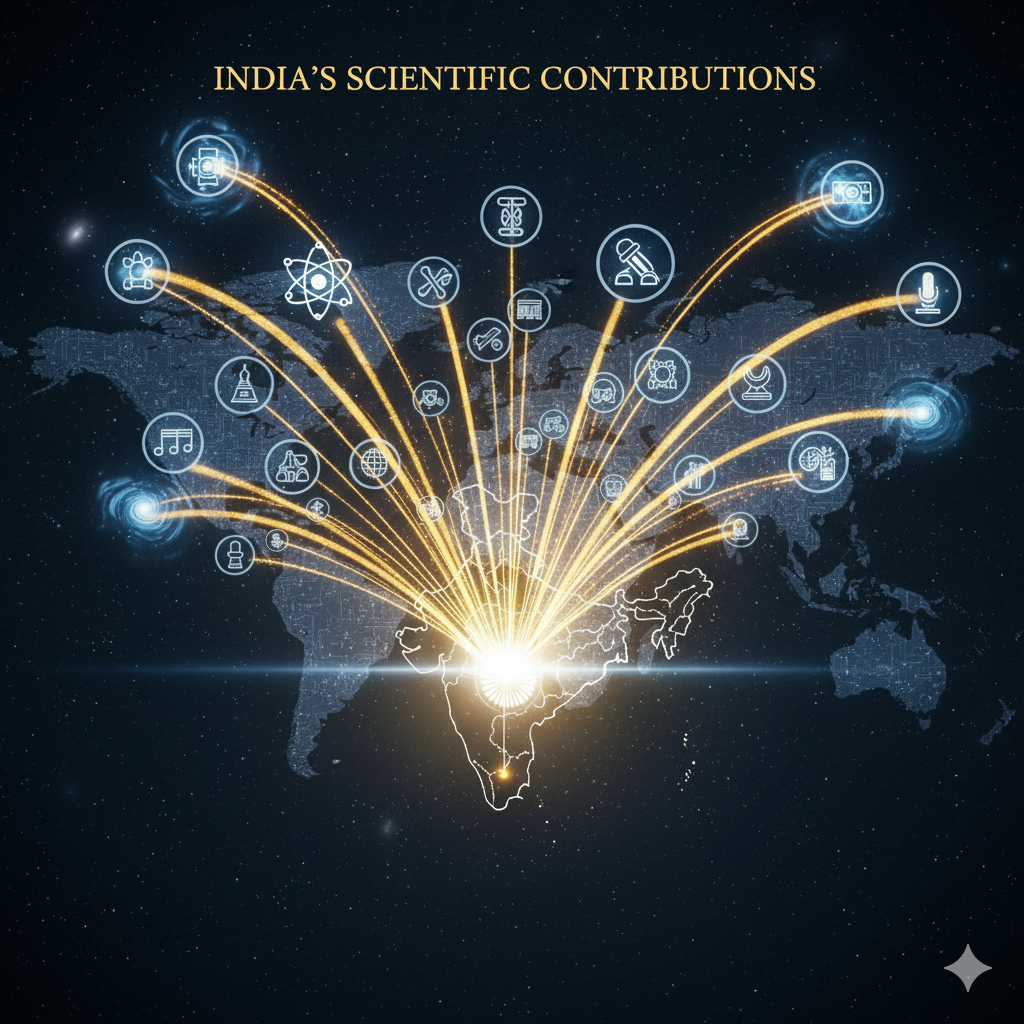Introduction
The 21st century is witnessing a dynamic shift in global economic power. Emerging economies are playing an increasingly critical role in shaping international trade, finance, and sustainable development agendas. Among these, India is uniquely positioned to assume a Vishwaguru role—not only as a cultural and scientific leader but also as a key player in global economic governance.
India’s potential as an economic Vishwaguru lies in its demographic advantage, robust democratic institutions, rapidly growing technology sector, and strategic participation in international financial systems. By integrating ethical governance, inclusive growth, and global cooperation, India can influence economic decision-making on the world stage, fostering a more balanced and equitable global economy.
This article explores India’s economic journey, its potential to lead global economic governance, and the pathways for it to consolidate its Vishwaguru vision in the 21st century.
1. Historical Context: India’s Economic Contributions
a. Ancient Economic Legacy
- India was a hub of global trade in ancient times, with the Silk Route and Spice Trade linking it to Europe, Africa, and Asia.
- Ancient cities like Mohenjo-Daro and Harappa displayed advanced urban planning, standardized weights, and taxation systems, reflecting economic sophistication.
- Indian mathematicians and accountants developed arithmetical and accounting systems that influenced trade and commerce across the world.
b. Medieval Economic Prowess
- India was famous for textiles, metalwork, and shipbuilding, contributing to global markets.
- Knowledge exchange in agriculture, irrigation, and trade practices influenced neighboring regions and beyond.
c. Colonial Disruption and Resilience
- Colonial policies disrupted indigenous economies, but India’s economic wisdom survived through local trade networks, cottage industries, and knowledge of finance and governance.
- Modern reforms and industrialization post-independence restored India’s economic momentum.
2. Post-Independence Economic Growth
a. Planning and Industrialization
- India adopted Five-Year Plans, emphasizing industrialization, infrastructure, and self-reliance.
- Establishment of public sector enterprises in steel, energy, and heavy industries laid the foundation for economic modernization.
- Agriculture and green revolution initiatives ensured food security while boosting rural economies.
b. Liberalization and Global Integration
- Economic liberalization in 1991 transformed India’s growth trajectory.
- Foreign investment, trade liberalization, and financial sector reforms integrated India with the global economy.
- IT and software exports positioned India as a global technology and services hub, enhancing its influence in international economic discussions.
3. India’s Economic Strengths in the 21st Century
a. Demographic Dividend
- With a population exceeding 1.4 billion, India has a young, skilled workforce.
- This demographic advantage provides a competitive edge in manufacturing, services, and innovation, contributing to global supply chains.
b. Digital Economy
- Initiatives like Digital India have accelerated financial inclusion, e-governance, and fintech adoption.
- Platforms like UPI and government digital services enhance India’s global reputation for technological efficiency in economic transactions.
c. Innovation and Startups
- India has one of the largest startup ecosystems in the world, with innovations in AI, fintech, cleantech, and healthtech.
- Startups contribute to job creation, technological exports, and knowledge leadership, strengthening India’s economic influence globally.
d. Strategic Geographic Location
- India’s location in the Indo-Pacific region positions it as a hub for trade, logistics, and maritime economic corridors.
- Ports, trade agreements, and regional connectivity projects bolster India’s ability to influence regional and global economic flows.
4. India’s Role in Global Economic Institutions
a. United Nations and Development Agencies
- India actively participates in UNCTAD, UNDP, and other development-focused bodies, shaping policies on trade, development, and poverty reduction.
- By advocating for the Global South, India promotes equitable economic development and inclusive decision-making.
b. G20 and Multilateral Finance
- India, as a G20 member, influences discussions on global finance, taxation, trade, and climate finance.
- India’s presidency of G20 emphasizes themes like inclusive growth, sustainable development, and equitable trade policies.
c. BRICS and South-South Cooperation
- India leverages platforms like BRICS, IBSA, and SCO to foster cooperation among emerging economies.
- Initiatives in development finance, infrastructure investment, and technological exchange showcase India’s potential as a global economic leader.
d. International Financial Institutions (IMF, World Bank, AIIB)
- India’s growing voting power and strategic engagement influence decisions on global lending, debt relief, and development aid.
- India advocates transparent, sustainable, and inclusive economic policies in these institutions.
5. India’s Ethical and Inclusive Economic Vision
India’s economic Vishwaguru vision emphasizes ethics, sustainability, and inclusivity:
a. Ethical Governance
- Policies prioritize anti-corruption, transparency, and accountability, setting standards for global economic practices.
- Initiatives like Goods and Services Tax (GST) and digital tax reporting enhance economic efficiency.
b. Sustainable Development Goals (SDGs)
- India aligns domestic and international economic policies with UN SDGs, promoting environmental sustainability, poverty reduction, and equitable growth.
- Programs like National Solar Mission, rural electrification, and smart cities highlight sustainable economic leadership.
c. Financial Inclusion
- Schemes such as Pradhan Mantri Jan Dhan Yojana ensure banking access to millions, reflecting India’s commitment to inclusive economic development.
- Digital and mobile banking expansion positions India as a model for financial empowerment in developing nations.
6. India’s Global Economic Influence Through Trade and Investment
a. Trade Relations
- India is a major player in global trade, exporting goods and services across technology, pharmaceuticals, agriculture, and textiles.
- Strategic trade agreements with ASEAN, EU, and African nations enhance India’s global economic footprint.
b. Foreign Direct Investment (FDI)
- Liberalized FDI policies attract global investors, increasing India’s capital inflow and technological collaboration.
- Sectors like renewable energy, digital infrastructure, and manufacturing benefit from strategic global partnerships.
c. Infrastructure and Development Projects Abroad
- India invests in regional infrastructure projects, particularly in Africa and South Asia, enhancing economic diplomacy.
- Projects include railways, ports, and energy infrastructure, reflecting India’s development-focused economic leadership.
7. Challenges in India’s Path to Economic Vishwaguru
Despite strong potential, India faces challenges in asserting global economic leadership:
- Income Inequality: Bridging the gap between urban and rural populations remains critical.
- Infrastructure Gaps: High-quality roads, ports, and urban planning are essential to sustain global competitiveness.
- Global Competition: Rival emerging economies like China require India to maintain innovation and productivity growth.
- Regulatory Reforms: Streamlining bureaucracy and ensuring ease of doing business remain ongoing priorities.
- Climate Change and Resource Management: Sustainable economic growth depends on managing environmental impacts.
8. Pathways for India to Strengthen Global Economic Leadership
a. Innovation and Technology
- Expanding R&D in AI, biotech, fintech, and renewable energy strengthens India’s global economic influence.
b. Education and Skill Development
- Investing in vocational training, higher education, and research institutions ensures a skilled workforce capable of global competition.
c. Sustainable Economic Diplomacy
- Leading initiatives on climate finance, green energy, and sustainable trade aligns India’s economic leadership with global ethical standards.
d. Strategic Alliances and Partnerships
- Strengthening relations with G20, BRICS, ASEAN, and Africa enhances India’s ability to influence global economic decisions.
e. Digital Transformation
- Expanding digital infrastructure, e-governance, and fintech innovations positions India as a model for the digital economy in the developing world.
9. India’s Vision as Vishwaguru in the Global Economy
India’s potential economic Vishwaguru role involves:
- Promoting inclusive and equitable growth globally.
- Integrating traditional wisdom with modern technology in economic planning.
- Championing ethical, transparent, and sustainable policies in global finance and trade.
- Strengthening South-South cooperation, supporting developing nations in achieving economic resilience.
- Using technology, innovation, and knowledge diplomacy to shape global economic norms.
By adopting this comprehensive approach, India can emerge as a trusted global guide in economic decision-making, balancing growth, ethics, and sustainability.
Conclusion
India’s journey toward becoming a Vishwaguru in global economic leadership reflects a blend of historical legacy, modern innovation, and ethical governance. From ancient trade networks to modern technology and financial systems, India has demonstrated the capacity to influence global economic structures.
In the 21st century, India’s demographic advantage, technological prowess, and ethical vision position it to play a central role in shaping global economic decision-making. By focusing on inclusive growth, sustainable development, and innovation-driven leadership, India can guide the world toward a more equitable, resilient, and prosperous global economy.
India’s economic Vishwaguru vision is therefore not merely aspirational; it is a strategic and achievable path, reinforcing India’s role as a leader, innovator, and guide for the global community.




